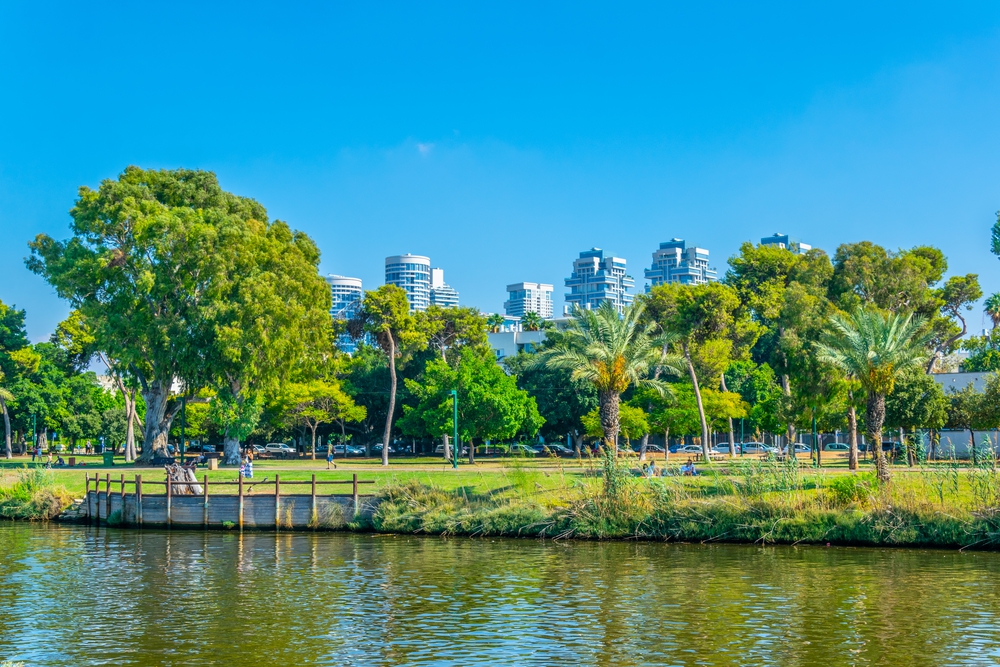

Yarkon Park, formally known as Ganei Yehoshua Park, is the green lung of Tel Aviv, Israel. Spanning over 3.8 square kilometers, this verdant paradise offers locals and tourists alike a serene escape from the urban landscape. The park is named after the Yarkon River, which winds through it, and has been a focal point of recreation since its establishment.
The development of Yarkon Park began in the 1950s when the city of Tel Aviv acknowledged the need for a large public park to accommodate its growing population. However, it wasn't until the 1970s that the park started taking shape under the guidance of architects Yitzhak Perlstein, Yechiel Avigdor, and Dan Zur. The vision was to create an urban oasis that harmonizes recreation, culture, and nature conservation.
Dedicated to the public in 1973, Yarkon Park fast became a popular destination for its lush landscapes, sports facilities, and the Yarkon River's historic significance, which dates back to biblical times. Over the years, the park has expanded and evolved with new attractions like the Rock Garden and the Tropical Garden, which houses over 3,500 species of plants and trees from around the world.
In recent years, sustainability and eco-tourism have become significant trends influencing Yarkon Park's development. Efforts to clean the river and improve ecological diversity are ongoing facets of preserving the park's natural beauty.
Another trend is the integration of technology within the park experience. Mobile-friendly maps and apps provide visitors with interactive tours, information about the flora and fauna, and facilitate sports activities scheduling.
Adventure and family-friendly activities are also on the rise. With expansive lawns, playgrounds, picnic areas, and a range of activities like paddle boating, kayaking, and cycling, Yarkon Park caters to both adrenaline seekers and those looking for leisurely relaxation.
The park continues to serve as a prime venue for international concerts and cultural festivals, attracting both global and Israeli music talents, as well as art exhibits that draw tourists from every corner of the world.
As a result of the park's diverse offerings and ongoing improvements, tourism has flourished in this urban retreat. Yarkon Park has not only boosted Tel Aviv's tourism sector but has also promoted environmental awareness and conservation among its visitors.
With its central location next to the national stadium and ease of access from different parts of the city, Yarkon Park remains a beloved destination for millions of tourists and local visitors each year.
In conclusion, Yarkon Park's blend of history, nature, and culture, alongside the latest tourism trends, continues to secure its reputation as a must-visit location in the heart of Tel Aviv.